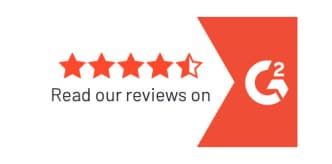If you own a small or medium-sized business and you don’t have a 401(k) plan up and running yet, you may be unfamiliar with the choice of joining a Pooled Employer Plan — or PEP for short. If you’re a financial advisor, you likely know about PEPs and may even work with some 401(k) providers that have formed a PEP.
While some business owners may realize some distinct advantages of joining a PEP versus implementing their own 401(k) plan, there are some downsides to going this route, and at 401GO, we believe our Syndicate option is a better choice.
How Does a PEP Work?
PEPs gained in popularity after Congress passed the SECURE (Setting Every Community Up for Retirement) Act in 2019, which made it easier for 401(k) providers to offer this multiple-employer plan.To be succinct, this federal law’s intention was to make it easier for workers in the U.S. to save for their own retirement. Many U.S. workers are employed by small and medium-sized businesses that don’t offer 401(k) plans, and that puts them at a disadvantage. Sure, they can (and do) open IRAs, but this method of saving for retirement falls short of a 401(k) in a number of ways.
With a PEP, a group of employers joins together and shares the costs and benefits of the plan in a way that a larger, more prosperous business is able to do on its own, similar to a purchasing co-op. A big difference is that with a PEP, employers from different industries and different geographic areas are free to band together. Before the SECURE Act was passed, businesses interested in this type of arrangement had to join a MEP (Multiple Employer Plan) comprised of businesses in the same industry. Now, with PEPs, companies have more freedom.
What’s the Draw of a PEP?
The bottom line with a PEP is that it may save some companies money. A PEP offers another advantage, which is that of relinquishing many fiduciary responsibilities to a third party. Instead of getting into the weeds of your 401(k) plan, your pooled plan provider takes tasks off your plate that can typically overburden you and your business, focused mostly on outsourcing many tasks to multiple service providers.
On the other side, since 401GO assists with those same tasks by simplifying the process of starting and managing a 401(k) plan with features such as same-day setup, automatic notifications and no-hassle payroll integration, taking responsibility for your plan doesn’t need to be overwhelming.
If PEPs lower fiduciary risk as well as startup and management costs, why does 401GO offer our Syndicate?
What Is 401GO Syndicate?
Our Syndicate plan offers many of the same attractive benefits that MEPs and PEPs do. Syndicates are groups of participants looking to offer a great product to employees while spreading out the costs and responsibilities at the same time. Each member group gets to offload their plan management and administrative costs and functions. Additionally, it’s not just companies that can start their own Syndicate — it’s other entities as well, such as chambers of commerce.
Some of the perks that make Syndicate different from an ordinary PEP are the same ones that make 401GO such a great option for small-business owners.
Chief among them is quick setup. Other traditional 401(k) plans take weeks to set up, while at 401GO, you can become a plan sponsor in 15 minutes. Starting a Syndicate is fast and easy as well. Plus, when a business starts its own Syndicate, it sets the rules, such as when and what types of employees can join, what the vesting schedule is, how much the employer match will be and more. Being a sponsor gives you back some of the control you would give up by joining an established PEP. And there’s no guarantee of any particular applicant being granted membership in a PEP — who gets in and who doesn’t is up to the sponsor and/or the group itself. Additionally, sponsors pay no ongoing costs — only member entities pay. And because the fee is shared among members, it’s lower than each business would pay on its own. In fact, this is one of the major drawbacks with PEPs that not everyone is aware of: loss of control.
What’s Bad About PEPs
Those who join PEPs thinking it’s a great way to offer their employees a valuable benefit while saving money at the same time may be sorely disappointed if they don’t understand the agreement fully, or if they don’t carefully read and digest the fine print before signing.
Worse, it can be extremely difficult to withdraw from a PEP once you’re in. Like any binding contract you sign, if you decide you don’t like the terms later and want to leave to sponsor your own 401(k), you may find that exiting is a long, drawn-out and expensive process. Additionally, if you ever close down your 401(k) plan in the PEP, you do not have control over the complete liquidation of assets and closure as it would fall on the PEP sponsor.
This is not necessarily because the PEP sponsoring group is untrustworthy or devious (although that is possible), but the sponsor makes the rules and the members must follow them, like it or not. You trade control and flexibility for monetary savings and reduced fiduciary responsibility (which may or may not be a good thing). These rules within the PEP can range from requirements to use the same payroll provider, same eligibility provisions (such as age and service), and additional costs relative to an audit.
Moreover, audit requirements have become easier to follow (starting in 2023) with the magic number that would require an audit (over 120) now being applied to those with an account balance, not those who are eligible to participate. For a PEP, this new counting rule does not apply. In fact, the PEP would require an audit if there are more than 1,000 participants overall. One clear and simple advantage of a Syndicate to the PEP is the reduced need for audits.
With a Syndicate, your plan is portable – or removable altogether, if you wish to dissolve the association. Additionally, employers retain the fiduciary control of their plan’s management with all the helpful automation to keep them informed to meet those responsibilities. While small business owners may not see this as a perk, it’s often because they don’t fully understand the process.
With a PEP, when you relinquish fiduciary responsibility to the pooled plan provider, you are not fully divested of liability. When you try to tease out the particulars, you will find that IRS rules on MEPs and PEPs are murky, difficult to interpret and constantly undergoing changes and revisions. Further, PEP sponsors are allowed to set certain rules regarding fiduciary responsibility, and each PEP can be different. Too often, employers learn that their PEP has all the power to make fiduciary decisions and changes, but leaves too much of the responsibility for what happens as a result of these decisions to the powerless members.
Syndicate & Financial Advisors
Financial advisors can help business associations and chambers of commerce get started with Syndicate, and ease the setup process for participating small businesses. You can help mitigate some of the fear that companies face when joining a group plan. Businesses want to be sure they can trust the person who’s taking the reins. Your clients already know and trust you, so you are the perfect person to facilitate the establishment of their Syndicate plan.
Assuming a pooled plan provider is honest isn’t the same as assuming they are good at their job, and both are critically important when managing MEPs, PEPs and Syndicates. Additionally, one of the most arguably widespread problems with PEPs is that members have no control over what type of investments they will be offered. It’s not unlike the Health Insurance Marketplace, which is so important to providing care for those who otherwise couldn’t get it, but in some locations may force subscribers to choose from among marginal, second-rate or downright bad plans. No one wants choices like that. 401GO offers Syndicate financial advisors excellent fund options — choices your members will appreciate.
Add to that the low cost, bundled automated services and live support when you need it, and you’ll see why so many financial advisors and small and medium-sized business owners choose Syndicate. Chat with 401GO today to learn more about Syndicate and our other retirement plan solutions.



